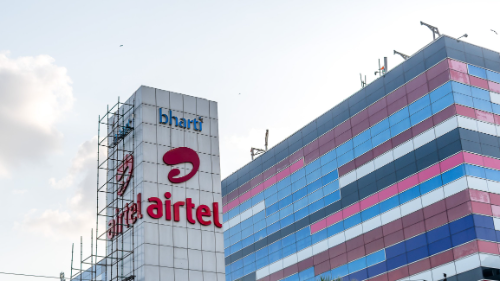Airtel Nigeria Bets $120M on AI With New Hyperscale Data Centre

TLDR
- Airtel Nigeria is investing $120 million to build a 38-megawatt data centre in Eko Atlantic, Lagos, with a core focus on powering artificial intelligence infrastructure
- The facility, now under construction and expected to go live in 2026, received its first shipment of high-performance GPUs
- Unlike rival MTN Nigeria, which is pursuing a cloud-first strategy, Airtel is prioritising AI compute capacity—addressing a gap identified in Nigeria’s 2024 draft National AI Strategy
Airtel Nigeria is investing $120 million to build a 38-megawatt data centre in Eko Atlantic, Lagos, with a core focus on powering artificial intelligence infrastructure. The facility, now under construction and expected to go live in 2026, received its first shipment of high-performance GPUs, a critical step toward enabling local AI model training and deployment.
“We are talking about high-capacity data centres, which can take the load of artificial intelligence that Nigeria needs,” said Dinesh Balsingh, CEO of Airtel Nigeria, during a media briefing.
Unlike rival MTN Nigeria, which is pursuing a cloud-first strategy, Airtel is prioritising AI compute capacity—addressing a gap identified in Nigeria’s 2024 draft National AI Strategy. The strategy emphasised the need for modern, local compute infrastructure to support data science, model development, and AI applications across sectors.
Airtel’s approach positions the company to serve both large enterprises and SMEs, while laying foundational infrastructure for Nigeria’s digital economy. The country has just 16 operational data centres, far behind South Africa and Kenya, which have a combined 75.
Daba is Africa's leading investment platform for private and public markets. Download here
Key Takeaways
Airtel Nigeria’s strategy marks a shift in telecom investment from cloud storage to AI compute infrastructure, aligning with national policy goals and global tech trends. While most local data centres focus on traditional hosting and storage, Airtel is targeting accelerated computing, which is essential for machine learning, natural language processing, and generative AI applications. The move underscores a growing urgency in Africa’s largest economy to localise AI capabilities. Analysts estimate that Africa has just 1% of global digital infrastructure, despite housing 17% of the world’s population. Without regional data processing power, AI development risks being constrained by latency, cost, and dependence on external infrastructure. By anchoring its new hyperscale data centre around GPUs and AI workloads, Airtel is building a foundation that could support Nigeria’s fintech, health-tech, and public sector AI ambitions. It could also position Airtel as a first mover in a future AI infrastructure market projected to scale rapidly as demand for local compute accelerates.

Next Frontier
Stay up to date on major news and events in African markets. Delivered weekly.
Pulse54
UDeep-dives into what’s old and new in Africa’s investment landscape. Delivered twice monthly.
Events
Sign up to stay informed about our regular webinars, product launches, and exhibitions.




